
January 18, 2022, 9:00 am - 3:00 pm
This is the second of three workshops exploring the development of a circular bioeconomy ecosystem in which renewable and waste resources are used as raw materials, substituting biomass-based and recycled carbon for fossil carbon in energy and products. Developing these bio-based production chains and businesses could create jobs, help decarbonize Wisconsin industries, and promote statewide rural economic development.
Newly established net-zero or carbon reduction goals in many industries and sectors are driving an increased focus on the capture, storage, and utilization of carbon dioxide. Emerging research highlights the capacity of the agricultural and forestry sectors to utilize soil, crops, perennials, and trees as carbon sinks, capturing and sequestering carbon from the air in products or natural landscapes. An emerging carbon management ecosystem of markets, government policies and incentives, and new technologies and industrial practices is creating potentially profitable opportunities to reduce carbon emissions and/or sequester carbon, better ensuring the long-term sustainability of these practices.
Join us virtually on Wednesday, Jan. 18 to help identify and explore the gaps and opportunities of carbon management in Wisconsin and connect with other stakeholders of the bioeconomy. There is no cost to attend.
Agenda
- 9:00 am – Welcome and Introductions
- 9:15 am – Carbon Management Overview
- Greg Nemet, Professor of Public Affairs, UW–Madison
- 9:45 am – Carbon Management Activities in Wisconsin Agriculture
- Diane Mayerfeld, Senior Outreach Specialist, Agriculture Institute, UW-Madison Division of Extension
- 10:00 am – Carbon Management Activities in Wisconsin Forestry
- Bryan Van Stippen, Project Director, National Indian Carbon Coalition
- 10:15 am – Break
- 10:25 am – Carbon Management On-the-Farm: Developing a Business Case
- Tim Baye, Professor of Business Development and State Energy Specialist, UW–Extension
- Sara Walling, Agricultural Policy Manager, Alliance for the Great Lakes
- 11:25 am – Focused Conversation
- 12:00 pm – Lunch Break
- 12:30 pm – Family Forest Carbon Program
- Jen Simoni, Midwest Director, Family Forest Carbon Program at American Forest Foundation
- 12:45 pm – Indigo Ag Agricultural Carbon Management
- P.V. Sundareshwar, Director of Sustainability Standards and Compliance, Indigo
- 1:00 pm – Carbon Removal with Corn Stover
- Robert C. Brown, Distinguished Professor, Iowa State University
- 1:15 pm – Lanzatech Bioindustrial Carbon Management
- Rachel Brenc, Director of Commercial Development, Lanzatech
- 1:30 pm – Focused Conversation
- 2:10 pm – Final Remarks
- 2:15 pm – Optional Online Networking Event
Speakers
Tim Baye
Professor of Business Development and State Energy Specialist, UW–Extension
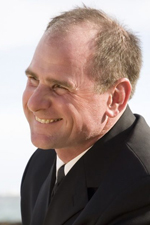 Tim Baye is a professor of business development and a state energy specialist with the University of Wisconsin–Madison, Division of Extension. His research and educational programs serve energy industry executives, professionals, and policy leaders. He has over 30 years’ experience in industrial renewable energy projects and policy, in education, executive and advisory capacities. Baye has a bachelor’s degree in marketing and economics from UW–Green Bay, master’s degrees from Marquette University and the University of Kentucky, and conducted postgraduate work at the UW–Madison.
Tim Baye is a professor of business development and a state energy specialist with the University of Wisconsin–Madison, Division of Extension. His research and educational programs serve energy industry executives, professionals, and policy leaders. He has over 30 years’ experience in industrial renewable energy projects and policy, in education, executive and advisory capacities. Baye has a bachelor’s degree in marketing and economics from UW–Green Bay, master’s degrees from Marquette University and the University of Kentucky, and conducted postgraduate work at the UW–Madison.
Rachel Brenc
Director of Commercial Development, Lanzatech
 Rachel Brenc is director of commercial development for Lanzatech, a gas fermentation company that utilizes a proprietary microbe to convert waste gasses to ethanol and other fuels and chemicals in a continuous process. She was the lead process engineer on the design of a first of its kind commercial plant in China, which successfully started in 2018. She holds a bachelor’s degree in chemical and biomolecular engineering from Cornell University and previously served as a reliability engineer for ExxonMobil.
Rachel Brenc is director of commercial development for Lanzatech, a gas fermentation company that utilizes a proprietary microbe to convert waste gasses to ethanol and other fuels and chemicals in a continuous process. She was the lead process engineer on the design of a first of its kind commercial plant in China, which successfully started in 2018. She holds a bachelor’s degree in chemical and biomolecular engineering from Cornell University and previously served as a reliability engineer for ExxonMobil.
Robert C. Brown
Distinguished Professor, Iowa State University
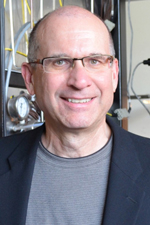 Dr. Brown is Anson Marston Distinguished Professor in Engineering and Gary and Donna Hoover Chair in Mechanical Engineering at Iowa State University (ISU). He is the founding director and currently co-director of ISU’s Bioeconomy Institute. He holds courtesy appointments in Chemical and Biological Engineering, Agricultural and Biosystems Engineering, and Food Science and Nutrition. His research interests include advanced biofuels, plastics upcycling, and carbon negative energy. Dr. Brown has written over 300 scientific papers and book chapters. He wrote Biorenewable Resources: Engineering New Products from Agriculture, widely used as a textbook around the world.
Dr. Brown is Anson Marston Distinguished Professor in Engineering and Gary and Donna Hoover Chair in Mechanical Engineering at Iowa State University (ISU). He is the founding director and currently co-director of ISU’s Bioeconomy Institute. He holds courtesy appointments in Chemical and Biological Engineering, Agricultural and Biosystems Engineering, and Food Science and Nutrition. His research interests include advanced biofuels, plastics upcycling, and carbon negative energy. Dr. Brown has written over 300 scientific papers and book chapters. He wrote Biorenewable Resources: Engineering New Products from Agriculture, widely used as a textbook around the world.
Diane Mayerfeld
Senior Outreach Specialist, Agriculture Institute, UW-Madison Division of Extension
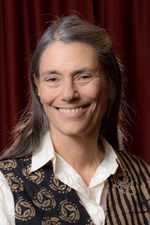 Diane Mayerfeld is the sustainable agriculture coordinator for University of Wisconsin-Madison Division of Extension. She helps educators and farmers learn about sustainable agriculture techniques and resources, including grants from the USDA Sustainable Agriculture Research and Education (SARE) program. Current areas of focus include climate change, working with diverse farmers, and perennial cropping systems. She has a PhD from the Nelson Institute for Environmental Studies at the University of Wisconsin-Madison and researches silvopasture in Wisconsin.
Diane Mayerfeld is the sustainable agriculture coordinator for University of Wisconsin-Madison Division of Extension. She helps educators and farmers learn about sustainable agriculture techniques and resources, including grants from the USDA Sustainable Agriculture Research and Education (SARE) program. Current areas of focus include climate change, working with diverse farmers, and perennial cropping systems. She has a PhD from the Nelson Institute for Environmental Studies at the University of Wisconsin-Madison and researches silvopasture in Wisconsin.
Gregory Nemet
Professor of Public Affairs, UW–Madison
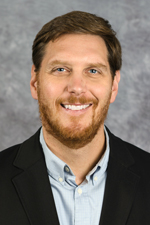 Gregory Nemet is a Professor at the University of Wisconsin–Madison's La Follette School of Public Affairs. His research and teaching focus research focuses on understanding the process of technological change and the ways in which public policy can affect it. He teaches courses in energy systems analysis, policy analysis, and international environmental policy. Professor Nemet's research analyzes the process of technological change in energy and its interactions with public policy.
Gregory Nemet is a Professor at the University of Wisconsin–Madison's La Follette School of Public Affairs. His research and teaching focus research focuses on understanding the process of technological change and the ways in which public policy can affect it. He teaches courses in energy systems analysis, policy analysis, and international environmental policy. Professor Nemet's research analyzes the process of technological change in energy and its interactions with public policy.
Jen Simoni
Midwest Director, Family Forest Carbon Program at American Forest Foundation
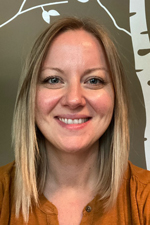 Through the American Forest Foundation’s Family Forest Carbon Program, Jen Simoni helps woodland owners access carbon markets in order to fight climate change while earning income from their land. She previously worked as a project manager for the My Wisconsin Woods initiative and as a forester for the Wisconsin Department of Natural Resources. She holds a bachelor’s degree in forestry from UW–Madison and a master’s degree in natural resource management from UW–Stevens Point.
Through the American Forest Foundation’s Family Forest Carbon Program, Jen Simoni helps woodland owners access carbon markets in order to fight climate change while earning income from their land. She previously worked as a project manager for the My Wisconsin Woods initiative and as a forester for the Wisconsin Department of Natural Resources. She holds a bachelor’s degree in forestry from UW–Madison and a master’s degree in natural resource management from UW–Stevens Point.
Pallaoor Venkatesh Sundareshwar
Director of Sustainability Standards and Compliance, Indigo
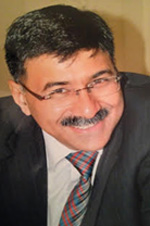 Dr. P. V. Sundareshwar (P.V.) is a Director of Sustainability Standards and Compliance at Indigo. He has almost 30 years of experience in environmental and climate issues in academia, the federal government, and consulting for the private sector. He has guided the development of environmental policies internationally, has contributed to national dialogue on carbon sequestration, and understands how sustainability information can impact enterprise value for businesses. He is adept at identifying a suite of material environmental, social, and governance (ESG) issues across diverse sectors, developing standards and metrics, designing projects to promote triple-bottom-line (planet, people, and profits), and auditing compliance to regulatory requirements. He has deployed his scientific expertise and technological innovation in ESG issues for sustainable international development and to improve R&D operations in a large organization. He has a Ph.D. in Biology from the University of South Carolina and an MS in Life Sciences from the University of Bombay, India.
Dr. P. V. Sundareshwar (P.V.) is a Director of Sustainability Standards and Compliance at Indigo. He has almost 30 years of experience in environmental and climate issues in academia, the federal government, and consulting for the private sector. He has guided the development of environmental policies internationally, has contributed to national dialogue on carbon sequestration, and understands how sustainability information can impact enterprise value for businesses. He is adept at identifying a suite of material environmental, social, and governance (ESG) issues across diverse sectors, developing standards and metrics, designing projects to promote triple-bottom-line (planet, people, and profits), and auditing compliance to regulatory requirements. He has deployed his scientific expertise and technological innovation in ESG issues for sustainable international development and to improve R&D operations in a large organization. He has a Ph.D. in Biology from the University of South Carolina and an MS in Life Sciences from the University of Bombay, India.
Bryan Van Stippen
Project Director, National Indian Carbon Coalition
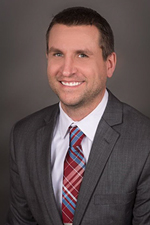 Project director Bryan Van Stippen (Oneida Nation of Wisconsin) joined the National Indian Carbon Coalition (NICC) from the Ho-Chunk Nation where he served as a Tribal Attorney for the Department of Justice before transitioning to the Legislative Office. As a Legislative Attorney, he was responsible for land acquisition and other land issues, including fee-to-trust, leasing, right-of-ways, and easements.
Project director Bryan Van Stippen (Oneida Nation of Wisconsin) joined the National Indian Carbon Coalition (NICC) from the Ho-Chunk Nation where he served as a Tribal Attorney for the Department of Justice before transitioning to the Legislative Office. As a Legislative Attorney, he was responsible for land acquisition and other land issues, including fee-to-trust, leasing, right-of-ways, and easements.
Sara Walling
Agricultural Policy Manager, Alliance for the Great Lakes
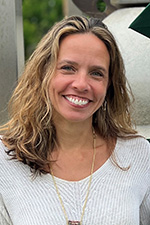 Sara Walling serves as the Agricultural Policy Manager at the Alliance for the Great Lakes. Sara brings to her role at the Alliance over 15 years of technical and policy development experience in agricultural nutrient management, water quality, and bioenergy while at the Wisconsin Department of Agriculture, Trade and Consumer Protection. Additionally, Sara served as the Agriculture Institute Director at the UW-Madison Division of Extension where she oversaw county extension agents and agricultural education and outreach programs. Sara has a Master of Science in Land Resources and Environmental Sciences from Montana State University- Bozeman and a Bachelor of Science in Natural Resources and Water Quality from the University of Minnesota-Twin Cities.
Sara Walling serves as the Agricultural Policy Manager at the Alliance for the Great Lakes. Sara brings to her role at the Alliance over 15 years of technical and policy development experience in agricultural nutrient management, water quality, and bioenergy while at the Wisconsin Department of Agriculture, Trade and Consumer Protection. Additionally, Sara served as the Agriculture Institute Director at the UW-Madison Division of Extension where she oversaw county extension agents and agricultural education and outreach programs. Sara has a Master of Science in Land Resources and Environmental Sciences from Montana State University- Bozeman and a Bachelor of Science in Natural Resources and Water Quality from the University of Minnesota-Twin Cities.
